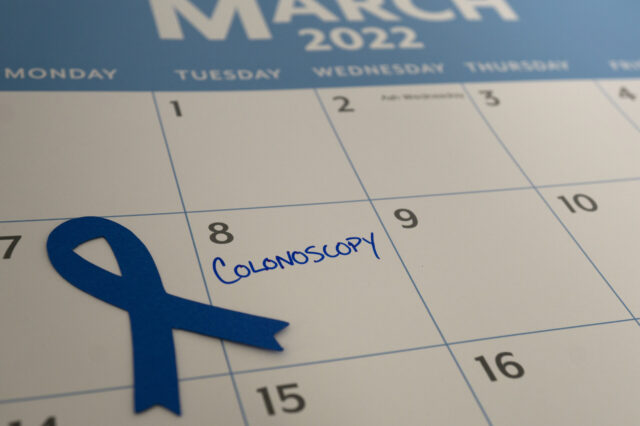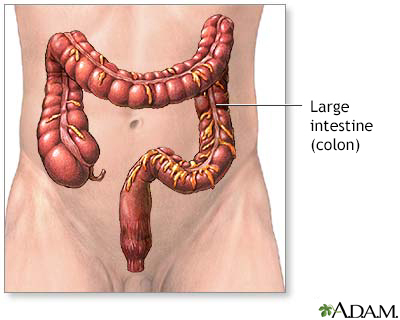Steps for Preventing Colorectal Cancer in Young Adults
Colorectal cancer is occurring far more often in those under 50 — a trend that’s held for the last decade. With regular screenings, however, the cancer is both…

Update your location to show providers, locations, and services closest to you.
Colon cancer screening can detect polyps and early cancers in the large intestine. This type of screening can find problems that can be treated before cancer develops or spreads. Regular screenings may reduce the risk for death and complications caused by colorectal cancer.
Screening for colon cancer; Colonoscopy - screening; Sigmoidoscopy - screening; Virtual colonoscopy - screening; Fecal immunochemical test; Stool DNA test; sDNA test; Colorectal cancer - screening; Rectal cancer - screening
SCREENING TESTS
There are several ways to screen for colon cancer.
Stool test:
Sigmoidoscopy:
Colonoscopy:

Other test:

SCREENING FOR AVERAGE-RISK PEOPLE
There is not enough evidence to say which screening method is best. But, colonoscopy is the most thorough but also has the highest risk. Talk to your provider about which test is right for you.
All adults should have a colon cancer screening test starting at age 45.
Screening options for people with an average risk for colon cancer:
SCREENING FOR HIGHER-RISK PEOPLE
People with certain risk factors for colon cancer may need earlier (before age 45) or more frequent testing.
More common risk factors are:
Screening for these groups is more likely to be done using colonoscopy.





Garber JJ, Chung DC. Colonic polyps and polyposis syndromes. In: Feldman M, Friedman LS, Brandt LJ, eds. Sleisenger and Fordtran's Gastrointestinal and Liver Disease. 11th ed. Philadelphia, PA: Elsevier; 2021:chap 126.
National Cancer Institute website. Colorectal cancer screening (PDQ) – health professional version. www.cancer.gov/types/colorectal/hp/colorectal-screening-pdq. Updated April 21, 2022. Accessed November 24, 2022.
Rex DK, Boland CR, Dominitz JA, et al. Colorectal cancer screening: recommendations for physicians and patients from the U.S. Multi-Society Task Force on Colorectal Cancer. Am J Gastroenterol. 2017;112(7):1016-1030. PMID: 28555630 pubmed.ncbi.nlm.nih.gov/28555630/.
US Preventive Services Task Force, Davidson KW, Barry MJ, et al. Screening for Colorectal Cancer: US Preventive Services Task Force Recommendation Statement [published correction appears in JAMA. 2021 Aug 24;326(8):773]. JAMA. 2021;325(19):1965-1977. PMID: 34003218 pubmed.ncbi.nlm.nih.gov/34003218/.
Wolf AMD, Fontham ETH, Church TR, et al. Colorectal cancer screening for average-risk adults: 2018 guideline update from the American Cancer Society. CA Cancer J Clin. 2018;68(4):250-281. PMID: 29846947 pubmed.ncbi.nlm.nih.gov/29846947/.


Our community and patient programs provide great value to patients, families and loved ones. People can find support, educational materials, expert consultants and more. In most instances, these programs are offered free of charge.
Improves health and quality of life for long-term cancer survivors.
An educational and networking event that brings together cancer patients, survivors, caregivers and health care professionals.
Helps bridge the gap between community members and resources available to them, including health screenings, classes and other services.
Helps individuals access high-quality cancer screening, prevention and treatment services.
Can assist you through the treatment process in a number of practical and supportive ways.
Colorectal cancer is occurring far more often in those under 50 — a trend that’s held for the last decade. With regular screenings, however, the cancer is both…

December 8, 2021
University of Florida researchers have developed a new compound that simultaneously attacks two key proteins critical for a cancer cell’s survival, a discovery…
College of Pharmacy, UF Health Cancer Center, +2 more
